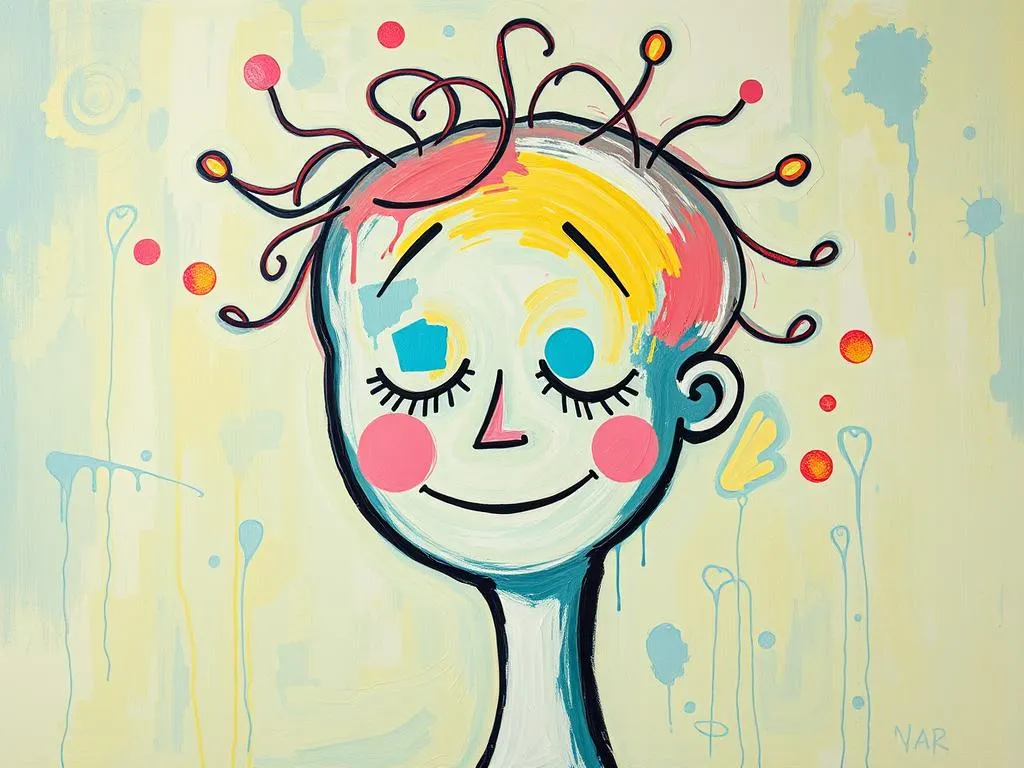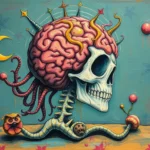
Have you ever woken up from a dream that left you feeling confused, anxious, or even enlightened? Dreams can be gateways into our subconscious, revealing thoughts and emotions we might not be fully aware of while awake. When it comes to mental conditions, the symbolism in our dreams takes on a profound significance, often acting as a mirror reflecting our internal struggles, hopes, and fears.
In exploring the symbolism of mental conditions in dreams, we can gain valuable insights into our emotional landscapes. Let’s delve into the intricate tapestry of dreams related to mental health, examining their meanings through various cultural lenses, psychological theories, and ultimately, how they can guide us toward personal growth.
Echoes of the Mind: Decoding Symbols of Mental Conditions
Dreams often serve as symbols of our waking life experiences, and when they touch on mental conditions, they can manifest in various striking images. Understanding these symbols is the first step toward unlocking their deeper meanings.
One prevalent symbol is darkness, which frequently represents feelings of despair or confusion. If you find yourself wandering through a dark forest in your dreams, it may indicate that you are grappling with a sense of hopelessness or are lost in your thoughts. In many cultures, darkness is associated with the unknown, prompting you to confront your fears and seek clarity.
Another common symbol is water, which has a dual nature in dream interpretation. While it can signify emotional turmoil, it can also represent healing and renewal. For instance, dreaming of turbulent waves may indicate that you are overwhelmed by anxiety or depression. Conversely, a calm lake may suggest that you are on the path to emotional healing and balance.
Isolation is yet another powerful symbol often seen in dreams related to mental health. This might manifest as being in a small room or a deserted island, reflecting feelings of loneliness or being overwhelmed by your thoughts. Such dreams can serve as a nudge to reach out for support or reconnect with loved ones.
In the realm of mental conditions, mirrors can also hold significant meaning. If you dream of looking into a mirror and seeing a distorted reflection, it might indicate a struggle with self-perception or identity, common among those facing mental health challenges. This symbol encourages you to explore your self-image and how it aligns with your reality.
Finally, flight or falling in dreams can represent the desire for freedom or the fear of losing control. Flying might symbolize an escape from mental burdens, while falling could signify feelings of anxiety or a fear of failure. Both scenarios challenge you to consider how you perceive your current situation and what changes might be necessary for your mental well-being.
The Labyrinth of the Mind: Scenarios That Speak Volumes
To further illuminate how mental condition dreams manifest, let’s explore several relatable scenarios. Each example serves to illustrate the diversity of experiences and the potential messages they carry.
-
The Chaotic Classroom: Imagine dreaming of being in a classroom where the teacher is shouting, and the students are unruly. This chaotic environment may symbolize your feelings of being overwhelmed in your waking life, perhaps due to work or personal responsibilities. This dream invites you to reflect on ways to regain control and create a more structured environment for yourself.
-
The Endless Maze: Picture yourself wandering through a never-ending maze, unable to find an exit. This dream can symbolize feelings of confusion or entrapment in your mental state. It may reflect unresolved issues or the struggle to navigate through complex emotions. Recognizing this symbol may inspire you to seek clarity and direction in your life.
-
The Broken Clock: In this dream, you encounter a broken clock that won’t tick. This image may represent feelings of stagnation or anxiety about time slipping away. It can serve as a reminder to focus on the present moment and prioritize what truly matters, rather than getting lost in worries about the future.
-
The Vanishing Path: You dream of walking a path that gradually disappears behind you. This scenario could symbolize your fear of losing opportunities or the feeling that your progress is fleeting. It encourages you to stay grounded and appreciate the journey, rather than fixating solely on the destination.
-
The Crowded Room: Picture yourself in a crowded room where everyone seems distant and uninterested. This dream may reflect feelings of isolation or anxiety in social situations. It acts as a powerful reminder to connect with others, even when it feels challenging.
Rising from the Depths: Transformative Insights for Personal Growth
Dreams about mental conditions are not merely reflections of our subconscious; they can also provide profound insights for personal growth and healing. By embracing the lessons embedded in these dreams, we can foster a deeper understanding of ourselves and our mental well-being.
First and foremost, self-awareness is key. By journaling your dreams and identifying recurring symbols or themes, you can start to recognize patterns in your emotional responses. This practice can help you cultivate mindfulness and a greater understanding of your mental state.
Additionally, consider the cultural perspectives surrounding mental health. Different cultures may interpret dreams and mental conditions in varied ways. For example, in some Indigenous cultures, dreams are viewed as a means of communication with ancestors or the spirit world. By exploring these cultural narratives, you may discover new ways to interpret your experiences and gain a broader perspective on your mental health journey.
Embrace vulnerability as a strength. Sharing your dreams with trusted friends or a therapist can create a supportive environment for processing your feelings. Open conversations about mental health can help dismantle stigmas and promote understanding, both for yourself and others.
Lastly, practice self-compassion. Dreams that delve into mental conditions can evoke discomfort, but they also offer an opportunity for growth. Allow yourself to feel your emotions without judgment and remember that it’s okay to seek help when you need it. Building emotional resilience takes time, and each small step counts.
As you navigate your dream landscape, remember this powerful reflection: Your dreams are not just fleeting images; they are guiding stars illuminating your path toward understanding, healing, and transformation. Whatever mental condition you may face, know that you are not alone, and your dreams can serve as a beacon of hope, guiding you toward a brighter tomorrow.







